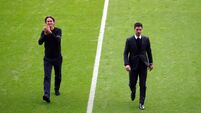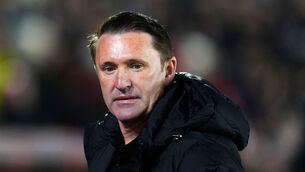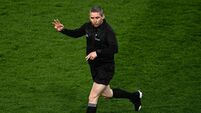Defiant Trap vows to fight on

Anything less than three points in Torshavn, however, and the pressure on the FAI to act immediately will be overwhelming — especially since the manager himself insists that he would not be prepared to jump first.
“Why should I resign?” he asked on Saturday. “We would still have seven games left.”














